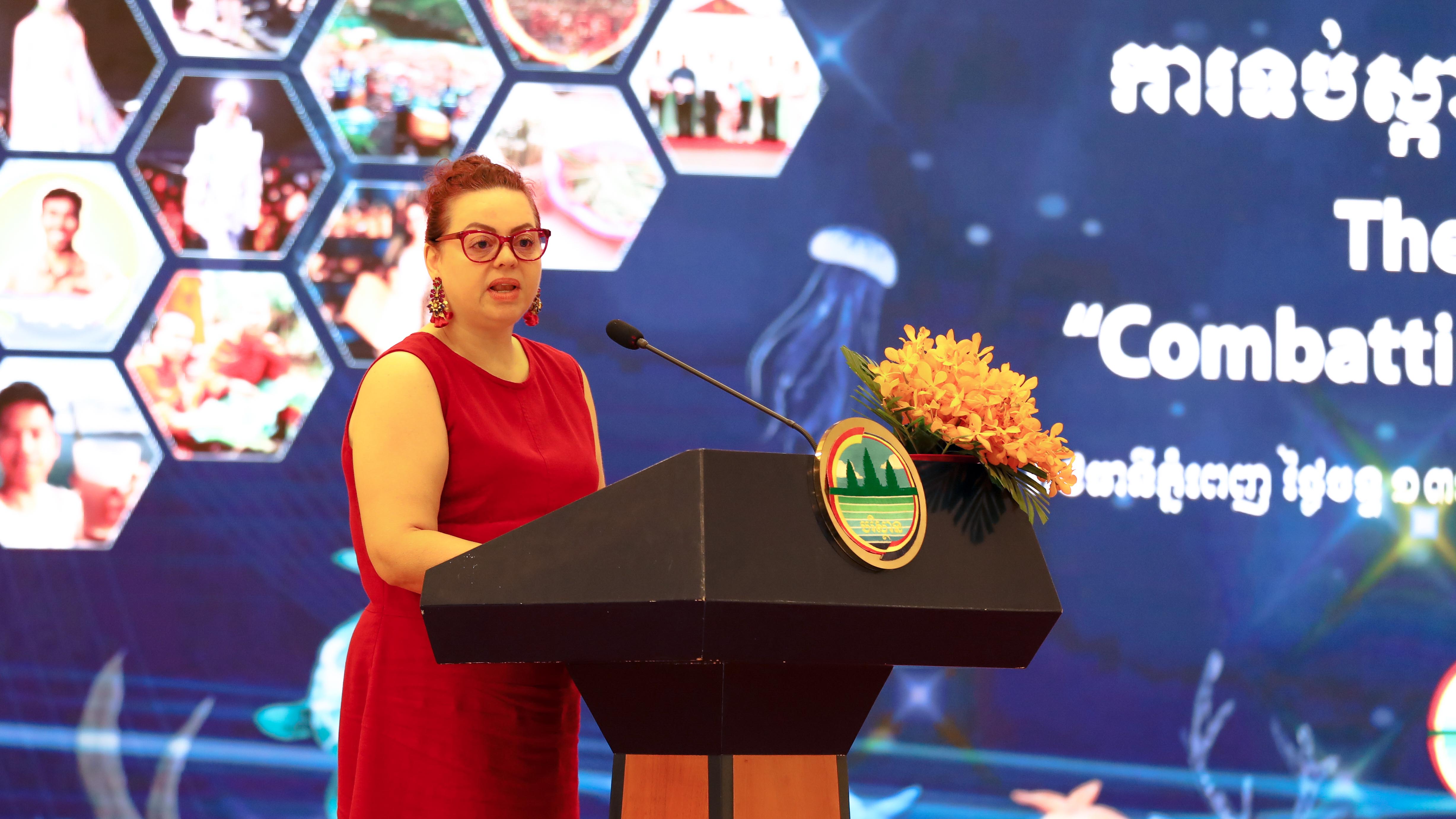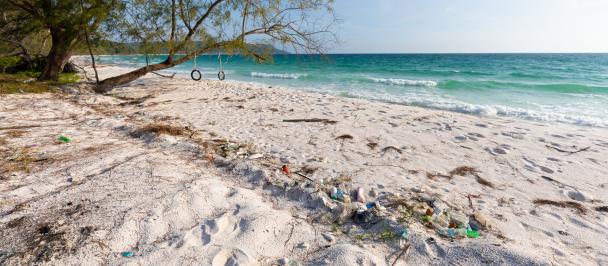Remarks by Ms. Alissar Chaker, UNDP Resident Representative
REMARKS | 3rd National Forum: Combatting Plastic Pollution in Cambodia
March 29, 2023

H.E. Mr. Chop Paris, Under-Secretary of State, Ministry of Environment of the Kingdom of Cambodia
H.E. Mr. Stefan Messerer, Ambassador of the Federal Republic of Germany to the Kingdom of Cambodia (TBC)
H.E. Mr. TANINAI Ichitomo, MINISTER/ Deputy Chief of Mission, Embassy of Japan in Phnom Penh
Distinguished Representatives of the Royal Government of Cambodia, Development Partners, Civil Society Representatives, UN Colleagues, Friends of the media, Ladies and Gentlemen.
I am delighted to participate with you in the 3rd National Forum: Combatting Plastic Pollution in Cambodia. First, I would like to congratulate the organizers, the Ministry of Environment, GIZ and UNDP colleagues for making this forum possible at a time when joint action and partnerships are crucial for overcoming the planetary crisis of plastic pollution, achieving zero waste societies, and accelerating the achievement of the Sustainable Development Goals (SDGs).
Distinguished Guests, ladies and gentlemen,
Nowadays, plastic pollution has become a planetary crisis. The plastic crisis emerged because of the enormous volume of plastic used which far exceeds our capacity to treat plastic waste safely. Cumulatively, global plastic production exceeds 8 billion metric tons. Out of the total amount, 9 % was recycled, 19 % was incinerated, and 50 % was buried in sanitary landfills, with the remaining 22 % ending in dumps, rivers, and eventually in oceans. Vast amounts of plastic waste (8-12 million metric tons) enter the ocean every year, negatively affecting marine ecosystems, related food chains and economic activities.
Once plastic enters the environment, it remains there for hundreds of years, breaking down slowly into microplastics. Microplastics, which are tiny particles less than 5mm in size, are everywhere including in our bodies. Microplastics also enter our bodies through food, water, and air. They were first detected in human faeces in 2018 and found in human lungs and blood in 2022. As they accumulate over time in our bodies, there are alarming concerns over health risks.
Distinguished Guests, ladies and gentlemen,
To end plastic pollution and protect public health, on the 2nd of March 2022 at the fifth session of the United Nations Environment Assembly (UNEA-5.2), the historic resolution 5/14 entitled "End plastic pollution: Towards an internationally legally binding instrument" was adopted by 175 UN Member States. In the next two years, Member States including Cambodia are going to negotiate key elements of the resolution to ultimately agree on a legally binding instrument by 2024.
The plastic crisis requires joint action by all countries regardless of income level, taking into consideration the entire lifecycle of plastic from design to production, trade, consumption, and eventually waste management (collection, disposal, and recycling).
To this end, Cambodia took bold action. With the generous support of the People of Japan, the Ministry of Environment and UNDP have been implementing the Combatting Marine Plastic Litter Project since 2021. Under this project, the Ministry of Environment played a pivotal role in promoting an integrated and circular approach focusing on the 4Rs (Refuse, Reduce, Reuse and Recycle) for plastic management, and is in process of developing relevant regulations, including new measures on unnecessary single use plastics.
In support of effective implementation of the regulatory measures, the Ministry of Environment led extensive awareness raising campaigns through social media and in the field that reached over 2 million viewers.
The project has also supported public-private partnerships and innovative circular business models at both national level and in four provinces to accelerate the shift to circular economy and foster innovation and transformational change leveraging finances for circular economy business models to achieve scalable impacts.
Together with GIZ, UNDP is also supporting the design of an Extended Producer Responsibility (EPR) Model. The EPR is another crucial instrument which would help Cambodia mobilize private sector support for effective collection and recycling of plastic waste.
During the forum, further updates on Cambodia’s initiatives for plastic management and emerging circular business solutions will be shared and innovative efforts will be introduced for communication and outreach for combatting plastic pollution. These include alternatives to plastic, various recycling efforts, waste to energy, and using plastic for longer-lasting asphalt for road construction.
UNDP appreciates the trust of the Royal Government and feels privileged to be among the pioneers in promoting circular economy in Cambodia, under the leadership of the Ministry of Environment. We also look forward to continuing and expanding our partnerships and collaboration with you all, working together to keep Cambodia clean and safe for everyone now and for future generations.
In closure, I wish you successful discussions and a good continuation, and a very happy Khmer New Year.
Thank you.

 Locations
Locations
